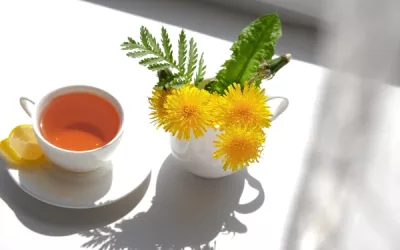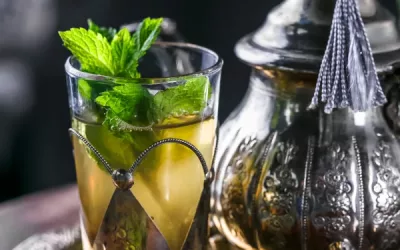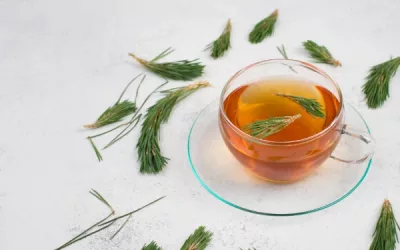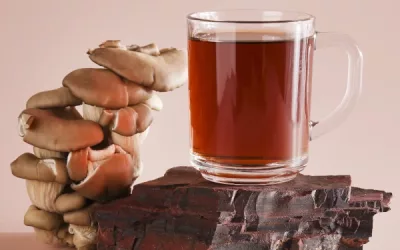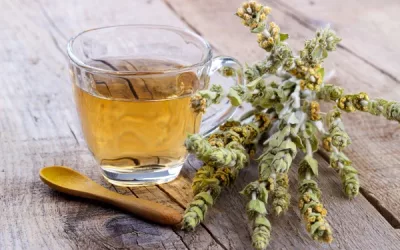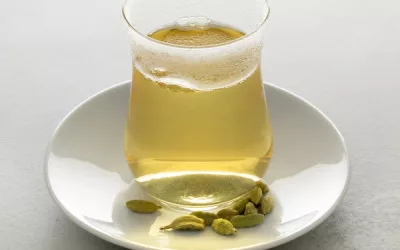Did you know that ginseng has been cherished for centuries as a natural tonic? This remarkable root, paired with tea, offers a wealth of health benefits that many health-conscious individuals are eager to explore. In this ultimate guide to ginseng tea, we’ll delve into its impressive effects on energy, cognitive function, and overall wellness, while also covering safe preparation methods and the best practices for maximum benefits. Join us as we unlock the secrets of ginseng tea and elevate your wellness journey.
Table of Content
- What is Ginseng tea?
- How do you prepare ginseng tea for maximum benefits?
- What are the key health benefits of ginseng tea?
- Is ginseng tea safe for everyone?
- How often should you drink ginseng tea?
- What is the difference between ginseng tea and ginger tea?
- What are the best ways to store ginseng tea?
- Conclusion
What is Ginseng tea?
Ginseng tea is a herbal beverage made from the roots of the ginseng plant, which is known for its medicinal properties. Ginseng, particularly Panax ginseng (Asian ginseng) and Panax quinquefolius (American ginseng), has been used in traditional medicine for centuries, especially in East Asian cultures, where it is highly valued for its health benefits.
Types of Ginseng:
- Asian Ginseng (Panax ginseng): Often found in Korea and China, it is considered more stimulating and warming. It’s traditionally used to boost energy, reduce fatigue, enhance mental clarity, and support overall vitality.
- American Ginseng (Panax quinquefolius): This variety is more cooling and is thought to have a calming effect. It’s commonly used to enhance the immune system, reduce stress, and improve focus.
Ginseng tea is enjoyed not only for its potential health benefits but also for its unique, slightly earthy, and bitter taste. It is a popular choice among those looking to incorporate natural remedies into their wellness routine.
What are the signs of high-quality ginseng tea?
Knowing your ginseng tea from your garden mulch isn’t as hard as it sounds. Here’s what to look for:
- Colour and Clarity: Quality ginseng tea boasts a rich, golden hue. If it’s cloudy or murky, you might want to pass.
- Ingredient List: Check for 100% pure ginseng with no added fillers, sugars, or artificial stuff.
- Source Information: High-quality ginseng often hails from reputable regions like Korea or Wisconsin.
- Smell and Taste: It should have a slightly earthy, sweet aroma. If it smells like old gym socks, it’s a hard no.
- Packaging: Go for vacuum-sealed or airtight packaging to ensure freshness.
High-quality ginseng tea is a bit like fine wine – you really do get what you pay for, so scrutinise those labels and know what you’re looking for before you buy.
How can I compare prices effectively when buying ginseng tea?
Price comparisons can be tricky, but not if you know the tricks of the trade. Consider these tips:
- Unit Price: Check the cost per gram or per bag. Larger quantities often give better value.
- Read Reviews: Often, reviews will point out if a tea is worth its price, saving you some guesswork.
- Subscribe and Save: Many retailers offer discounts for subscription services. Handy if you plan on drinking ginseng tea regularly.
- Seasonal Deals and Discounts: Watch out for promotions. Black Friday, Boxing Day, or even random flash sales can save you serious cash.
- Price Comparison Tools: Use websites or browser extensions like Honey to compare prices across different sites automatically.
Being a savvy shopper has its perks – a happy wallet and a happy palate!
Now, let’s wrap this up with an epic tale from the past. Did you know that ginseng has been around since ancient times? It’s like the OG of herbal remedies. In the 16th century, Korean ginseng was so prized that it doubled as currency!
During the Joseon Dynasty, ginseng was reserved for royalty and high-ranking officials, believed to bring health, longevity, and wisdom. Traders would travel for days just to procure this “root of immortality” for their lords. Think about that next time you’re sipping your ginseng tea; you’re practically drinking history! Fancy, right?
Enjoy your tea hunting adventure! Sip wisely.
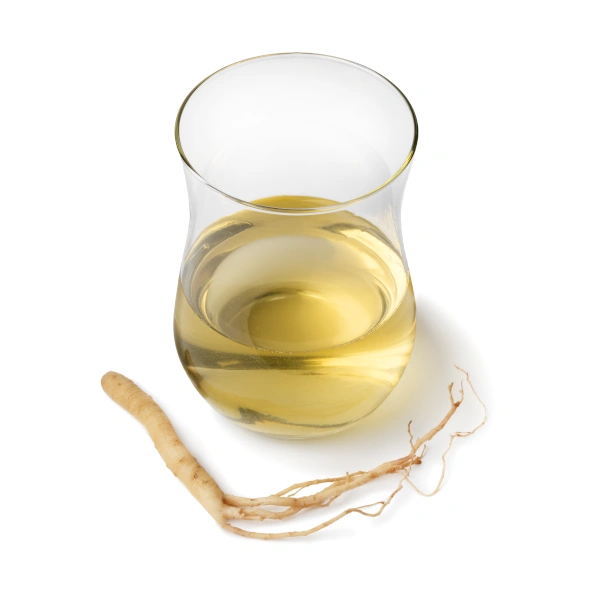
How do you prepare ginseng tea for maximum benefits?
Ginseng tea offers a wealth of health benefits, but to get the most out of it, you need to prepare it correctly. The preparation method, steeping time, water temperature, and additional ingredients all play crucial roles in maximising the tea’s benefits. Whether you’re looking to boost energy, enhance cognitive function, or simply enjoy a soothing beverage, this guide has you covered.
To help you understand the various ways to prepare ginseng tea, I’ve created a table that details different preparation methods, recommended steeping times, additional ingredients to enhance flavour and benefits, and the specific benefits you can expect from each method.
Preparation methods, steeping times, additional ingredients, and benefits
Below is a table that summarises the different ways to prepare ginseng tea. The ‘Preparation Method’ column lists the different methods, while the ‘Steeping Time’ column provides the ideal time for steeping.
The ‘Additional Ingredients’ column suggests various ingredients you can add to enhance the flavour and benefits, and the ‘Benefits’ column highlights what each method can offer you.
| Preparation Method | Steeping Time | Additional Ingredients | Benefits |
|---|---|---|---|
| Traditional Hot Tea | 5-10 mins | Honey, lemon | Boosts energy, improves mood |
| Cold Brew | 8-12 hours | Mint leaves, citrus slices | Refreshing, aids digestion |
| Powdered Ginseng | Instant | Ginger, cinnamon | Quick energy boost, anti-inflammatory |
| Ginseng and Green Tea | 3-5 mins | Lemon zest, honey | Antioxidant-rich, improves focus |
| Ginseng and Herbal Blend | 5-7 mins | Chamomile, lavender | Calming, improves sleep quality |
| Ginseng Latte | 5-7 mins | Milk, vanilla extract | Creamy texture, boosts stamina |
| Ginseng Iced Tea | 8-10 mins | Lime, mint | Refreshing, enhances hydration |
Traditional hot tea
When preparing traditional hot ginseng tea, you want to ensure that you’re steeping it long enough to extract the active compounds but not too long to avoid bitterness. Here’s a straightforward method:
- Boil water and let it cool slightly (around 90°C).
- Add 1-2 teaspoons of dried ginseng root or a ginseng tea bag to a cup.
- Pour the hot water over the ginseng and let it steep for 5-10 minutes.
- Add honey or lemon to taste.
This method helps in boosting energy and improving mood, making it great for a morning pick-me-up or a mid-afternoon slump.
Cold brew
Cold brewing ginseng tea is an excellent method if you prefer a milder flavour and want to prepare a large batch at once:
- Add 1-2 teaspoons of dried ginseng root or a ginseng tea bag to a litre of cold water.
- Let it steep in the fridge for 8-12 hours.
- Add mint leaves or citrus slices for extra flavour.
Cold brew ginseng tea is refreshing and aids digestion. It’s perfect for hot summer days or as a hydrating beverage on-the-go.
In ancient Korea, ginseng was considered a precious herb, often reserved for royalty and the elite. One famous story involves King Taejo of the Goryeo Dynasty. He reportedly consumed ginseng tea daily to maintain his strength and vitality during his rule.
This practice not only helped him stay healthy but also symbolised his connection to the longevity and wisdom associated with ginseng.
I remember the first time I tried ginseng tea. I was feeling particularly rundown after a long week. A friend recommended it, swearing by its energising properties. I steeped the ginseng root for about 10 minutes and added a bit of honey.
The earthy flavour was comforting, and within half an hour, I felt a noticeable lift in my energy levels. Now, it’s my go-to remedy whenever I need a natural boost.
What are the key health benefits of ginseng tea?
Ginseng tea has long been hailed for its numerous health benefits. It is deeply rooted in traditional medicine, particularly in East Asia, and has gained popularity around the globe. You might be curious about what makes this tea so special. Well, let’s dive into its various benefits like enhancing stamina, boosting mental clarity, supporting the immune system, and aiding digestion.
Ginseng tea is packed with powerful compounds called ginsenosides, which are responsible for a lot of its health benefits. These compounds work in harmony to support your body’s overall well-being. Here’s why ginseng tea might be a great addition to your daily routine.
How does ginseng tea improve energy levels?
If you often find yourself feeling sluggish and lacking energy, ginseng tea could be your new go-to drink. The natural compounds in ginseng help improve stamina and reduce fatigue.
- Enhances physical stamina, helping you to stay active throughout the day.
- Reduces feelings of fatigue, keeping you energised and ready to tackle tasks.
- Improves endurance, making it beneficial for athletes or those with physically demanding jobs.
- Supports adrenal function, helping your body manage stress better.
- Boosts metabolic rate, making energy production more efficient.
Ginseng tea works by supporting your adrenal glands and enhancing the efficiency of your metabolic processes. This means your body can produce energy more effectively, keeping you feeling lively and alert. Regular consumption of ginseng tea can help you maintain consistent energy levels without the crash associated with caffeine.
What role does ginseng play in cognitive function?
Ginseng is often referred to as a brain tonic, and for good reason. It provides a natural boost to your cognitive functions, helping you stay sharp and focused.
- Enhances memory and learning abilities, making it easier to retain information.
- Improves mental clarity, aiding in better decision-making and problem-solving.
- Reduces mental fatigue, keeping you alert during long periods of mental exertion.
- Increases concentration, helping you stay focused on tasks for longer.
- Reduces symptoms of anxiety and stress, promoting a calmer mind.
The ginsenosides in ginseng tea help increase blood flow to the brain, which improves oxygen and nutrient delivery. This enhances neural function, making your brain work more efficiently. Whether you’re studying for exams or working on complex projects, ginseng tea can be a valuable ally in maintaining mental acuity.
Can ginseng tea help with digestive issues?
Your digestive health is crucial for overall well-being, and ginseng tea can play a role in maintaining a healthy digestive system. It helps in several ways:
- Stimulates the production of digestive enzymes, aiding in better food breakdown.
- Reduces inflammation in the gut, which can alleviate conditions like IBS.
- Enhances nutrient absorption, ensuring you get the most from your meals.
- Eases symptoms of indigestion, such as bloating and gas.
- Promotes a healthy gut flora, supporting a balanced microbiome.
By stimulating your digestive system, ginseng tea helps you process and absorb nutrients more effectively. This not only improves digestion but also boosts your overall health. Drinking ginseng tea regularly might keep your digestive system running smoothly, reducing discomfort and enhancing nutrient uptake.
In ancient China, ginseng was often used by warriors and scholars alike. Warriors consumed ginseng tea to maintain their stamina and endurance during long battles. Scholars, on the other hand, used it to keep their minds sharp and focused while studying.
One such figure was Confucius, the renowned Chinese philosopher, who is believed to have used ginseng to enhance his mental prowess and clarity.
Is ginseng tea safe for everyone?
When it comes to ginseng tea, safety can be a mixed bag. For most people, it’s as harmless as a kitten in a sunbeam. But for others, it can be a bit trickier. We’re about to dive into the nitty-gritty details, so grab your brew and let’s see who should be guzzling ginseng and who should be giving it a hard pass.
Common side effects of ginseng tea
Ginseng tea is generally considered safe for most adults, but it does come with a few caveats. Sometimes the immune-boosting, energy-enhancing elixir isn’t as friendly as it seems. Here’s a rundown of the potential common side effects:
- Nervous jitters: Think of it as the evil twin of your morning coffee shakes.
- Headaches: Your noggin might start pounding like a rock concert.
- Stomach issues: Nausea and bloating could crash your tea party.
- Blood pressure swings: Especially if you already have hypertension, your blood pressure might decide to go on a roller-coaster ride.
- Allergic reactions: Red rashes and itching can be an unwelcome surprise for some.
These side effects are more of an annoyance than a serious health threat, but they’re something to keep in mind.
Medication interactions to be aware of
Mixing ginseng tea with medications can sometimes lead to more drama than a soap opera. You’ve got to be savvy about potential interactions. Here are some interactions that can cause a hiccup:
- Blood thinners: Ginseng’s anticoagulant properties can turn a minor cut into a crimson mess.
- Diabetes medications: Pumping up on ginseng might lower your blood sugar too much.
- Antidepressants: Ginseng might end up meddling with your serotonin levels.
- Immunosuppressants: Ginseng may ramp up your immune system, which isn’t ideal if you’re supposed to be keeping it in check.
- Stimulants: Mixing caffeine with ginseng can make you feel like you’ve just chugged a triple espresso.
So, if you’re on any medication, a chat with your healthcare professional might be as important as not missing your soap opera episode.
Is ginseng tea safe for children?
Handing over ginseng tea to children is like handing over the TV remote—proceed with caution. Here’s what you need to consider:
- Lack of research: There isn’t a ton of solid research on the effects of ginseng tea in children.
- Hormonal impacts: Ginseng can mess with hormone levels, which isn’t ideal when kids are already riding the puberty roller coaster.
- Energy levels: Ginseng might make kids a little too bouncy, and they’re already bouncing off walls, aren’t they?
- Interactions with supplements: A lot of children take multivitamins, and adding ginseng to the mix can create unpredictable conditions.
So, it’s best to keep ginseng tea as an adults-only beverage unless advised otherwise by a healthcare professional.
In ancient China, ginseng root was revered and used by emperors for its supposed life-prolonging properties. Imagine an emperor sipping ginseng tea, overseeing his sprawling domains. Not everyone had the privilege; it was specifically reserved for royalty.
Much like today, where it should be consumed conscientiously, it was then considered a potent concoction that needed to be treated with respect and used wisely. The tale of ginseng is a reminder: sometimes, the best things in life come with a couple of ‘handle with care’ labels.
How often should you drink ginseng tea?
Ginseng tea, the herbal elixir that promises to turn you into a superhuman, is gaining popularity fast. But, as with everything that sounds too good to be true, moderation is key. Let’s get into how often you should be integrating this magical beverage into your life.
First and foremost, recommended daily intake is about 1-2 cups per day. You know that saying, “too much of a good thing”? Well, it applies here. Overdoing it can lead to side effects like headaches, insomnia, and even digestive issues. Basically, if you start feeling off after drinking it, maybe it’s time to take a break. And always, but always, listen to your body’s feedback—the ultimate built-in health advisor.
What is the ideal daily intake of ginseng tea?
So, you’re wondering how many cups of ginseng tea you should be guzzling down in a day to achieve optimal health benefits? Here’s the deal.
- Stick to 1-2 cups: This amount is generally considered both effective and safe.
- Morning Champion: Consume one in the morning to jump-start the day with a burst of energy.
- Afternoon Delight: Another cup after lunch can help combat that mid-afternoon slump.
- 7-10 days rule: Drink for 7-10 consecutive days, then take a break for a week to avoid tolerance build-up.
Despite its numerous benefits, let’s not pretend it’s kryptonite for all ills. Balance, my friend, is the magic word.
Can drinking too much ginseng tea cause problems?
Yes, and not the fun kind. Overindulging in this seemingly harmless beverage can invite a host of issues to your doorstep.
- Headaches and Dizziness: Who needs a hangover when you’ve got ginseng?
- Insomnia: Say hello to restless nights if you go overboard.
- Digestive Issues: Gas, bloating, even diarrhoea – not the kind of cleanse you want.
- Increased Heart Rate: Your heart might mistake you for running a marathon while you’re just watching Netflix.
- Blood Pressure Fluctuations: If you already have hypertension, gulping down too much ginseng could complicate things further.
How can I tell if I am taking too much ginseng tea?
Your body has a supernatural way of letting you know when something’s off. Pay attention, or it’ll whip you into shape the hard way.
- Insomnia and Restlessness: Can’t sleep? Your body’s waving a red flag.
- High Blood Pressure: Test your blood pressure regularly if you’re a ginseng tea enthusiast.
- Nervousness or Irritability: Feeling jittery or snapping at everyone? Time to reduce intake.
- Headaches and Migraines: Not worth the trade-off for those ‘benefits’, right?
- Digestive Disturbances: From bloating to the runs – if something feels wrong, it probably is.
Taking heed of these signs and addressing them promptly can save you a trip to the doctor’s. After all, the goal is to enhance, not hinder, health.
The use of ginseng dates back to ancient China. According to legend, General Qi Jiguang brought it to his troops during the Ming Dynasty to boost their stamina during long marches.
They weren’t just fighting battles, they were climbing mountains and tackling terrains tougher than a Monday morning. So, next time you sip ginseng tea, know you’re partaking in a tradition that fortified warriors.
By being mindful of your intake and listening to your body’s signals, you can enjoy all the benefits this powerful herb offers without any of the unpleasant side effects. Cheers to smart sipping!
What is the difference between ginseng tea and ginger tea?
Alright, folks. Gather ’round because we’re diving headfirst into the world of ginseng tea and ginger tea. These herbal sips have been part of human traditions for eons, but what really sets them apart? If you’re a health-conscious tea lover or someone curious about natural remedies, you’ll want to sip on this info.
Ginseng tea boasts a rich history in both Chinese and Korean medicine, revered for its energy-boosting and immune-enhancing properties. It’s often described as slightly sweet and earthy. On the other hand, ginger tea is the fiery cousin – warming, spicy, and used globally to aid digestion and combat nausea.
Now, let’s sprinkle in some specifics about their health benefits, flavour profiles, preparation methods, and cultural significance.
How do the health benefits of ginseng and ginger compare?
Both ginseng and ginger are powerhouses, but they come with their own unique benefits. Here’s a quick rundown:
- Ginseng Tea:
- Boosts energy and reduces fatigue.
- Enhances cognitive function.
- Supports immune health and may reduce inflammation.
- Contains antioxidants that fight free radicals.
- Ginger Tea:
- Excellent for digestion and reducing nausea.
- Anti-inflammatory and pain relief properties.
- Supports cardiovascular health.
- Contains antioxidants that protect against cellular damage.
So, if you’re looking to ramp up your energy or sharpen your mind, ginseng might be your go-to. If you’re queasy or looking to ease inflammation, ginger’s got your back.
What are the distinct flavour differences between the two teas?
Let’s talk about what’s tickling your taste buds. Ginseng tea and ginger tea each offer a distinct flavour profile:
- Ginseng Tea:
- Mildly earthy and slightly sweet.
- Often described as having a somewhat grassy, medicinal taste.
- Smoothed out with a hint of bitterness.
- Ginger Tea:
- Strong, spicy, and warming.
- Tangy and zesty with a peppery kick.
- Can sometimes leave a slight burn on the tongue, especially when brewed strong.
Prepare for a calm, subtly sweet experience with ginseng tea, whereas ginger tea is like a zingy wake-up call. Perfect for different moods and tastes.
In what ways are ginseng and ginger used in traditional medicine?
These two roots are not just for tea time; they also play significant roles in traditional medicine:
- Ginseng in Traditional Medicine:
- In Chinese and Korean medicine, ginseng is often used to boost qi (energy), improve vitality, and support overall health.
- It’s considered an adaptogen, helping the body cope with physical and mental stress.
- Traditionally used to enhance libido and sexual function.
- Ginger in Traditional Medicine:
- Ginger has been a staple in Ayurvedic and traditional Chinese medicine for centuries.
- Used to treat digestive disorders, including indigestion, bloating, and nausea.
- It’s a common antidote for colds and flu due to its warming effects and ability to induce sweating.
Each root has carved out a niche in traditional healing practices, proving their worth over thousands of years.
Centuries ago, Korean warriors would consume ginseng to sharpen their battle skills and maintain stamina. Imagine packing ginseng tea into your ancient lunchbox! Similarly, during the Tang Dynasty in China, ginger was credited with warding off evil spirits and illness, which was no small feat. These traditions highlight how these powerful roots have been revered through history. Cheers to centuries of wellness passed down in a teacup!
What are the best ways to store ginseng tea?
Storing ginseng tea might not seem like rocket science, but if you do it wrong, you could end up sipping on something that tastes like an old sock. Keeping this ancient elixir fresh and potent requires just a little bit of effort. Let’s break it down, or as the cool kids would say, “spill the tea” on storage, shelf life, and spotting a dodgy batch.
So, you’re hooked on ginseng tea, and rightfully so. This magical brew promises a wealth of benefits – from boosting energy to enhancing mental clarity. But let’s face it, no one wants their tea to taste like a dusty relic from the past. Here’s how to make sure your ginseng tea stays as fresh as the day you bought it.
How should I store ginseng tea to keep it fresh?
Let’s get into the nitty-gritty of keeping your ginseng tea in top form. The last thing you want is for your tea to turn into a sad, stale version of its former self. Think of your ginseng tea as a diva – it needs the right conditions to shine.
Store your ginseng tea:
- In an airtight container – oxygen is the enemy and we’re locking it out.
- Away from direct sunlight – sunbathing is for people, not tea leaves.
- In a cool, dry place – think pantry or cupboard, not next to your steamy stovetop.
- Separate from strong-smelling items – no one wants their tea tasting like garlic.
- Use it before the expiration date – it’s not a fine wine; it doesn’t get better with age.
Airtight containers are a must, unless you want your ginseng tea to absorb every odour in the kitchen. Keep it safe from moisture – humidity is like kryptonite to tea leaves. And remember, your ginseng tea isn’t there to impersonate a chameleon; it should taste like ginseng, not the essence of your spice rack.
What is the typical shelf life of ginseng tea?
Unlike that ancient fruitcake at the back of your cupboard, ginseng tea does have a “best before” date. Although it won’t morph into a mutant monster after that, its taste and potency might take a nosedive.
Here’s the lowdown on its shelf life:
- Loose leaf ginseng tea: 12 to 18 months if stored correctly
- Ginseng tea bags: 6 to 12 months
- Ginseng powder: Up to 2 years
Manufacturers usually stamp an expiration date on the packaging. But don’t push your luck; keep an eye on the date and aim to finish it up beforehand. The goal is to enjoy the rich, earthy flavour, not wonder if you’re drinking a soil sample.
How can I tell if my ginseng tea has gone bad?
The sad day may come when your beloved ginseng tea is past its prime. Better to be safe than sorry; better to sip than gag. Here’s how to identify a has-been batch:
- Faded or dull aroma – if your nose can’t detect it, neither can your taste buds.
- Change in colour – discolouration means it’s not feeling its best.
- Off or sour smell – tea should smell earthy, not like compost.
- Stale taste – musty tea belongs in the bin, not in your cup.
- Visible signs of mould – fuzzy bits on tea are never a good sign.
It’s a sensory test, really. Give it a sniff, a look, and a taste. If it doesn’t pass, it’s time to say your goodbyes and chuck it into the nearest compost heap.
Now, let’s take a trip down memory lane. Back in the 3rd century AD, the legendary Chinese general Zhao Yun was a fan of ginseng. After a gruelling battle, he fell ill. The local physician concocted a brew from ginseng roots, and voila! Zhao Yun was back to his fighting best. The moral here? Even in ancient times, the power of properly stored ginseng was well recognised. So, channel your inner Zhao Yun, and keep that ginseng tea fresh and fabulous!
Conclusion
In summarising our exploration of ginseng tea, it becomes clear that this herbal infusion offers a plethora of health benefits that are both compelling and transformative. From its abilities to enhance energy levels and boost cognitive function to its role in supporting digestive health and immune response, ginseng tea emerges as an exceptional natural remedy.
Through our discussion on preparation methods, we’ve identified optimal steeping times and additional ingredients that not only elevate flavours but also amplify the tea’s health benefits. Importantly, we tackled safety concerns, underscoring potential side effects and identifying those who should exercise caution around this potent brew.
The implications of incorporating ginseng tea into one’s daily wellness routine are noteworthy. As individuals become increasingly health-conscious, understanding how to prepare and consume ginseng tea safely and effectively is essential.
Regular intake can yield significant health benefits; however, as we advised, it’s crucial to listen to our bodies and adhere to recommended quantities.
While ginseng tea offers an array of advantages, it’s intriguing to consider how it measures up against other popular infusions like ginger tea. Both possess unique properties and flavours, compelling us to make mindful choices depending on our health goals.
Furthermore, potential weight loss benefits from ginseng tea invite further inquiry into its metabolism-boosting properties and the best practices for its consumption in this context.
As we venture forth, I encourage you to explore high-quality sources for ginseng tea, keeping a keen eye on signs of quality and freshness. After all, investing in your health with genuine products can make a world of difference.
Ultimately, I leave you with a thought: in a world brimming with choices, what if the simplest remedy, like a humble cup of ginseng tea, holds the key to unlocking our fullest potential? Remember, wellness need not be complex; sometimes, it lies in the basics we often overlook.
Resources
- Ginseng and health outcomes: an umbrella review – PMC
- The efficacy of Panax ginseng in obesity and the related metabolic …
- The effects of ginseng on the metabolic syndrome: An updated review …
- Active ginseng components in cognitive impairment: Therapeutic …
- Biological Activities of Ginseng and Its Application to Human Health …
- Red ginseng extracts ameliorate high-fat diet-induced obesity and …
- Herbal Medications in Cardiovascular Medicine: – Journal of the …
- 7 Proven Health Benefits of Ginseng


